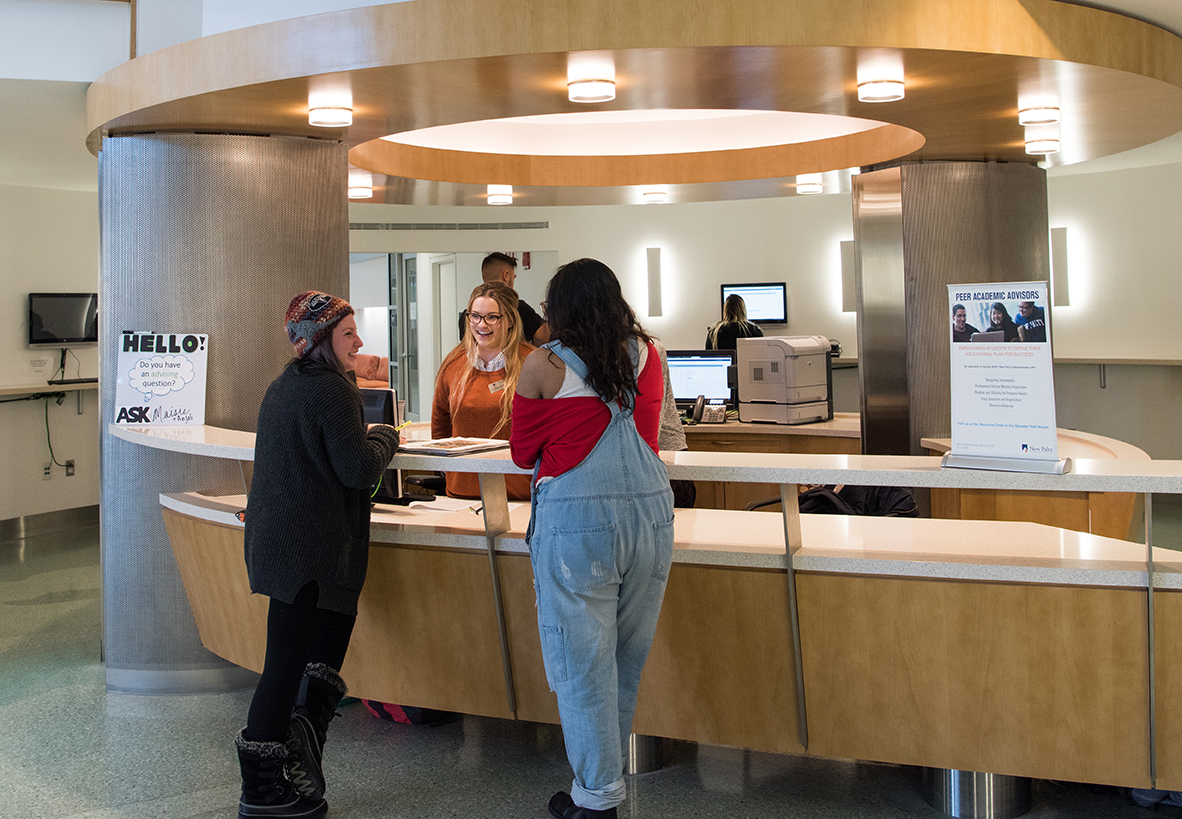 The Office of Academic Advising at SUNY New Paltz is rolling out a new service designed to meet the needs of students seeking quick and easy answers to common questions about the advising and registration culture at New Paltz.
The Office of Academic Advising at SUNY New Paltz is rolling out a new service designed to meet the needs of students seeking quick and easy answers to common questions about the advising and registration culture at New Paltz.
The new Peer Academic Advisors have been trained to help fellow students with issues related to course registration, graduation requirements, grading policies and dates and deadlines, among a variety of other topics.
Through personalized assistance and group session opportunities, peer advisors encourage and model the use of advising tools, assist in advising meeting preparation, and make informed referrals to campus resources.
“We assist fellow students in their navigation of the plentiful resources and academic directions that exist for them at New Paltz,” said Maisie Miller ’19 (Sociology), one of the Peer Academic Advisors. “We’ve been trained to speak from our own student experience to fulfill our role, which grants us the ability to assist with many of the most common confusions that come up.”
Students are welcome to drop by the desk on the first floor of Wooster Hall with any and all questions they might have. They can expect Peer Academic Advisors to be friendly, to treat all cases with respect and confidentiality, and, when they don’t know an answer, to provide a reference to the appropriate professional advisor or staff member.
“Peer Academic Advising was developed to support institutional goals for improving academic advising, as outlined in the College’s Strategic Plan,” said Dante Cantú, executive director of the Center for Student Success and the Office of Academic Advising. “With the necessary oversight and support, the peer academic advisors are uniquely equipped to guide and educate their peers in navigating the campus culture of advisement.”
The first cohort of Peer Academic Advisors met during Winter Break for an intensive, two-day training program to bring them up to speed. The training included informative consultations with staff in Records & Registration, Financial Aid and other student services, as well as more holistic conversations on concepts that are core to the mission of the Office of Academic Advising, like helping students develop strategies for strengths-based learning and self-advocacy.
“The most important thing students need to know about us, is that we exist!” Miller said.
“You don’t need to exclaim your questions loudly into the abyss – we can help you figure out the right questions to ask the right people. Come by!”
Learn more about the Office of Academic Advising online, or just drop by the Peer Academic Advisor desk in Wooster Hall to say hello.

